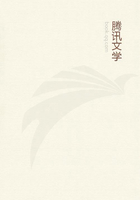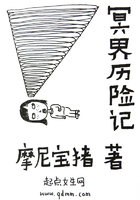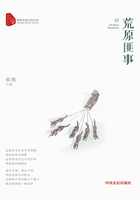What Sydenham did for medicine was briefly this he studied the course of diseases carefully, and especially as affected by the particular season; to patients with fever he gave air and cooling drinks, instead of smothering and heating them, with the idea of sweating out their disease; he ordered horseback exercise to consumptives; he, like his teacher, used few and comparatively simple remedies; he did not give any drug at all, if he thought none was needed, but let well enough alone. He was a sensible man, in short, who applied his common sense to diseases which he had studied with the best light of science that he could obtain.
The influence of the reform he introduced must have been more or less felt in this country, but not much before the beginning of the eighteenth century, as his great work was not published until 1675, and then in Latin. I very strongly suspect that there was not so much to reform in the simple practice of the physicians of the new community, as there was in that of the learned big-wigs of the "College," who valued their remedies too much in proportion to their complexity, and the extravagant and fantastic ingredients which went to their making.
During the memorable century which bred and bore the Revolution, the medical profession gave great names to our history. But John Brooks belonged to the State, and Joseph Warren belongs to the country and mankind, and to speak of them would lead me beyond my limited-- subject. There would be little pleasure in dwelling on the name of Benjamin Church; and as for the medical politicians, like Elisha Cooke in the early part of the century, or Charles Jarvis, the bald eagle of Boston, in its later years, whether their practice was heroic or not, their patients were, for he is a bold man who trusts one that is making speeches and coaxing voters, to meddle with the internal politics of his corporeal republic.
One great event stands out in the medical history of this eighteenth century; namely, the introduction of the practice of inoculation for small-pox. Six epidemics of this complaint had visited Boston in the course of a hundred years." Prayers had been asked in the churches for more than a hundred sick in a single day, and this many times.
About a thousand persons had died in a twelvemonth, we are told, and, as we may infer, chiefly from this cause.
In 1721, this disease, after a respite of nineteen years, again appeared as an epidemic. In that year it was that Cotton Mather, browsing, as was his wont, on all the printed fodder that came within reach of his ever-grinding mandibles, came upon an account of inoculation as practised in Turkey, contained in the "Philosophical Transactions." He spoke of it to several physicians, who paid little heed to his story; for they knew his medical whims, and had probably been bored, as we say now-a-days, many of them, with listening to his "Angel of Bethesda," and satiated with his speculations on the Nishmath Chajim.
The Reverend Mather,--I use a mode of expression he often employed when speaking of his honored brethren,--the Reverend Mather was right this time, and the irreverent doctors who laughed at him were wrong.
One only of their number disputes his claim to giving the first impulse to the practice, in Boston. This is what that person says:
"The Small-Pox spread in Boston, New England, A.1721, and the Reverend Dr. Cotton Mather, having had the use of these Communications from Dr. William Douglass " (that is, the writer of these words); surreptitiously, without the knowledge of his Informer, that he might have the honour of a New fangled notion, sets an Undaunted Operator to work, and in this Country about 290 were inoculated."
All this has not deprived Cotton Mather of the credit of suggesting, and a bold and intelligent physician of the honor of carrying out, the new practice. On the twenty-seventh day of June, 1721, Zabdiel Boylston of Boston inoculated his only son for smallpox,--the first person ever submitted to the operation in the New World. The story of the fierce resistance to the introduction of the practice; of how Boylston was mobbed, and Mather had a hand-grenade thrown in at his window; of how William Douglass, the Scotchman, "always positive, and sometimes accurate," as was neatly said of him, at once depreciated the practice and tried to get the credit of suggesting it, and how Lawrence Dalhonde, the Frenchman, testified to its destructive consequences; of how Edmund Massey, lecturer at St. Albans, preached against sinfully endeavoring to alter the course of nature by presumptuous interposition, which he would leave to the atheist and the scoffer, the heathen and unbeliever, while in the face of his sermon, afterwards reprinted in Boston, many of our New England clergy stood up boldly in defence of the practice,--all this has been told so well and so often that I spare you its details. Set this good hint of Cotton Mather against that letter of his to John Richards, recommending the search after witch-marks, and the application of the water-ordeal, which means throw your grandmother into the water, if she has a mole on her arm;--if she swims, she is a witch and must be hanged; if she sinks, the Lord have mercy on her soul!
Thus did America receive this great discovery, destined to save thousands of lives, via Boston, from the hands of one of our own Massachusetts physicians.
The year 1735 was rendered sadly memorable by the epidemic of the terrible disease known as "throat distemper," and regarded by many as the same as our "diphtheria." Dr. Holyoke thinks the more general use of mercurials in inflammatory complaints dates from the time of their employment in this disease, in which they were thought to have proved specially useful.

